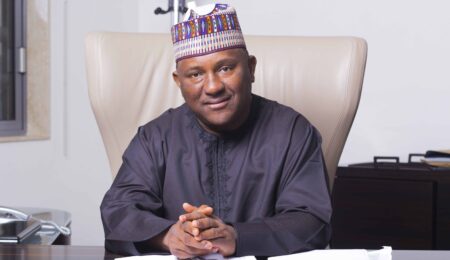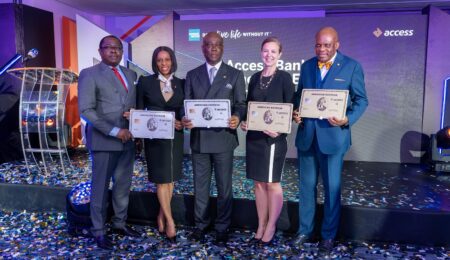As of Wednesday, June 21, 2023, the United Nations estimated Africa’s population to be approximately 1.435 billion people, about 16.72% of the global population. With such a population, the continent lacks proper healthcare facilities and good infrastructure to cater to its needs. Many African countries lack reliable healthcare facilities, adequate tools and staff. How can the continent then deal with disease outbreaks?
According to the United States National Institute for Health, Africa is experiencing a double burden of diseases, characterised by the increasing prevalence of chronic non-communicable diseases (NCD) and the battle to deal with infectious diseases. Poor healthcare systems and high rates of urbanisation have contributed to periodic rises in communicable diseases.
In Kenya, health challenges include high maternal and child mortality and a high burden of infectious diseases such as HIV, tuberculosis, and malaria. Malaria remains a major public health problem in Kenya and accounts for an estimated 16% of outpatient consultations.
But the most significant problem in the country’s health sector is the lack of jobs for doctors (medics). About 4,000 trained doctors in the country are jobless, even though both staff public and private hospitals are overwhelmed with thousands of patients per day. This has led to recurrent suicides among trained doctors.
This challenge is significant but not insurmountable. Every problem is a potentially profitable business opportunity, according to Dr Henrietta Onwuegbuzie, Associate Professor of Entrepreneurship at Lagos Business School. This is the problem Dr Wambui Karingithi identified and is moving to create a sustainable solution for Kenya medics with Chiza Health.
Karingithi is the Founder and Chief Executive Officer (CEO) of Chiza Health, a healthtech startup. Although the Kenya-based startup is still at its accelerator stage, it has an ambitious plan to transform Africa’s healthcare ecosystem, starting from Kenya. In a recent interview, Karingithi speaks with Ventures Africa.
Venture Africa (VA): What was growing up like for you, and what childhood event helped to shape your personality?
Wambui Karingithi (WK): Growing up, I had the good fortune to have parents who were present and capable enough to provide for all my needs. My mother was my role model and all I wanted to do is make my mother proud. I couldn’t imagine disappointing her. So, in school, I did my best to be an A student. I was in the scouts and science clubs and was a teacher’s pet. Maths and science were my favourite subjects.
I honestly can’t remember how my dream of becoming a doctor started, but from what I am being told by my family, it started when I was 4-years old. I learnt from childhood never to back down from a challenge. This is what has kept me going till now. Challenges drive me. I guess so that I can prove to myself, that I am capable. The challenges I faced while working hard in school and tarmacking for years for a job, have all shaped me into the woman I am now.
VA: Take us through what it means to be a Health-tech startup founder as a Kenyan woman.
WK: Being a young woman, who is a doctor, with a young family, very little business experience and zero tech skills has made this journey quite an experience.
Once you start a healthtech company, some of the questions people would ask are things like, “Are you sure you are up for this? What experience do you have to run a health startup? Which influential medic is backing you up?”
I remember when I and my co-Founder decided to start seeking out investors and applying to a variety of Venture Capital companies, Hubs and Angel Investors, I had to start learning investor vocabulary. My sister had to teach me finance. We kept receiving regret emails from VCs after introductory calls, that we are still too early, or we don’t have revenue. Even the health tech Hubs required revenue.
At the time, I was an unemployed medic and I was starting a company. You can imagine how hard it was. It was such a challenge because we had been bootstrapping from the start and we needed funds and mentorship to launch our product. I think the startup world needs to be more lenient on early-stage companies.
But, those challenges, with encouragement from my husband, family and friends pushed me on. I kept applying until this year we got into two accelerator programs, Africa Impact Initiative & Accelerate Africa by Future Africa, which has spurred me to where we are now.

VA: What inspired you to launch Chiza Health?
WK: After qualifying from med school, I thought my dreams had finally come true. I’m a doctor. I’ll get a job, practice and help people. But that was not the case. I tarmacked a year and a half without getting a job.
I used to make a list of facilities around me and would visit them to drop off CVs, from Monday to Friday. I either received no communication from them or I’d get regret emails. Some days I got lucky to proceed to the interview stages with a few facilities, but most of them had a very poor paying structure. I was going to work for free. It was heartbreaking for me but then I realised that I wasn’t the only medic facing that challenge. I wanted to change that.
Africa has 3.6 million medics in total with over a million across different countries jobless. Kenya has close to 50,000 medics who are unemployed. Yet, 1000 medics graduate every year. And the numbers will keep increasing every day.
Africa’s healthcare system is quite distorted. From the poor quality of health facilities, and unemployment of medics, to poor home care services, and poor access to quality healthcare. That’s why I founded Chiza Health. We are working to improve the quality of Africa’s healthcare system, starting from Kenya.
VA: Tell us a bit more about Chiza Health, what you do and what sets you apart.
WK: Chiza Health is a healthtech company, I founded alongside my co-founder, Ian Mutai, in April 2022. Our mission is to transform Africa’s healthcare ecosystem, starting from Kenya.
We have different products that we are hoping to launch in the coming years, Chiza MedicHub, Chiza Care and My Chiza.
Chiza MedicHub is our first product. It’s a scheduling and staffing solution that would be bridging the gap between unemployed medics and understaffed facilities. Medics (anyone in the healthcare profession) sign up and join the Chiza M.D Bank. Through the platform, they can easily highlight their availability for the upcoming month to take up locum shifts. More so, medics will gain access to training and education models within the platform, continuously improving their knowledge and skills.
Onboarded Medical Facilities, on the other hand, will gain access to a pool of qualified medics to take up their shifts based on their experience, availability and proximity. These facilities can internally shift and schedule their staff within the platform. Through this product, we are bringing efficiency to the staffing and scheduling systems in the healthcare industry.
VA: Have you experienced any form of gender bias as a tech founder? Share a story.
WK: Honestly, I have not. The startup world has evolved now.
VA: How have you been able to stay on top of your game in your industry?
WK: I fear failure. Remember when I said, Challenges drive me? Exactly that. I am pushing myself to make sure I give Chiza Health my all.
So far, what has helped me stay on my cause is the fact that I have been very fortunate to have a great support system- my husband and family have supported me. Receiving advice from my close circle of friends and those who have been in the startup world longer than I have, really helped me to reach where I am. Most importantly, having the right co-Founder, who shares your dreams and vision, is super important.
VA: Have you had access to any accelerator program since you started Chiza Health?
WK: Yes. Late last year, I had the privilege of being in the Future is Female Mentorship Program 3rd Cohort. I learnt a lot about PR, marketing, and the importance of telling a story. It changed my perspective on PR and its importance for startups.
This year, Chiza Health qualified for the Health Entrepreneurship African Impact Initiative Pre-Incubation Program which ran for six weeks. This helped to guide me on various business aspects of my startup.
Currently, Chiza Health was among the 25 startups selected- out of 500 startups- to join the Accelerate Africa Program by Future Africa. This has been an amazing journey. We currently have two mentors, one of them being the managing partner of Future Africa and the other Olamide Afolabi, C.E.O & Founder of Touch and Pay, an alumnus of Y-Combinator. Because of these accelerator programs, we have been able to initiate our piloting phase.
We are hopeful to start onboarding medics in Kenya by the start of July. This is great progress on our end.
VA: What is your career hack for people who want to journey into the startup ecosystem as a Founder/ co-Founder?
WK: I came across a really good quote a while back. And it says, “View every person you meet as a door that may lead you to a new opportunity.” I think this is the greatest advice you would give anyone in the startup world.





